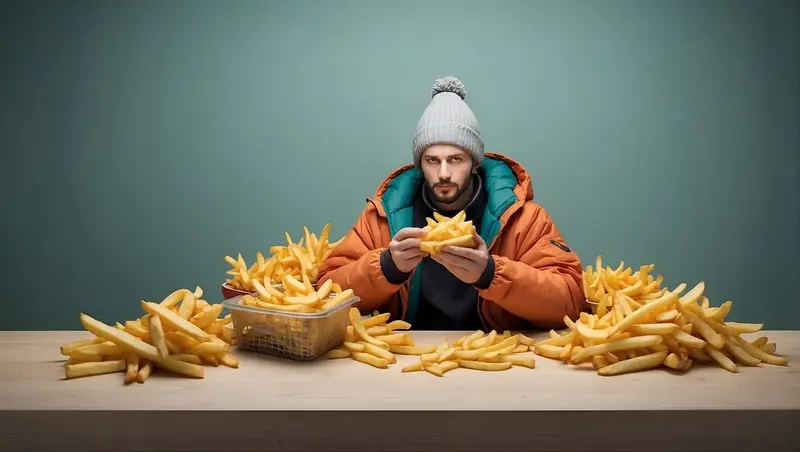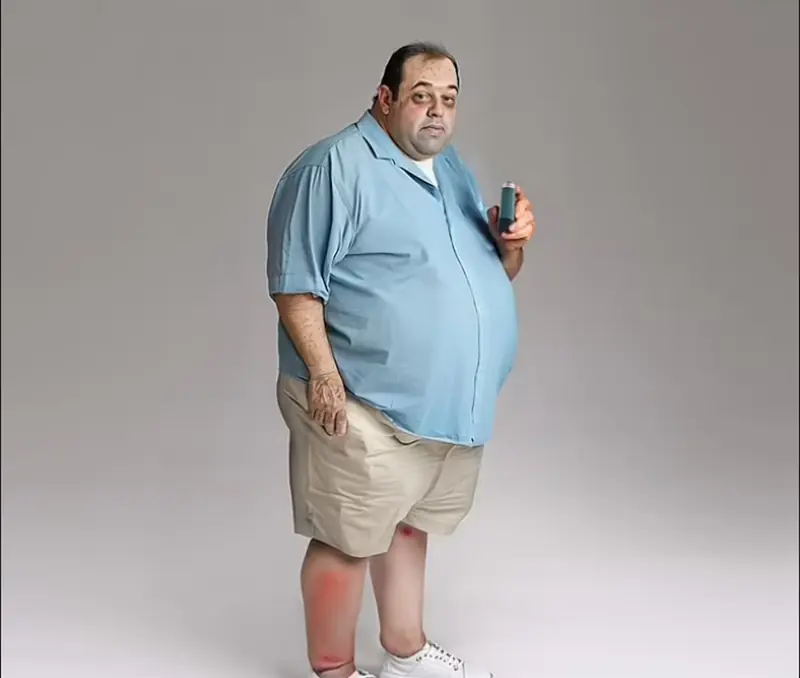
An AI system has created a model of Michael—a fan of ultra-processed food (UPF)—for a research report by the culinary company Gousto.

Meet Michael
This is one of those cases where seeing the consequences of ultra-processed food abuse is far more impactful than hearing a hundred arguments about how harmful they are.
So, meet Michael. His shoulders are hunched. He is clearly struggling under the weight of his enormous, bloated belly. His chest is sagging, his skin is marked with acne, and his legs are swollen and covered in sores. His yellowed eyes, framed by dark circles, stare blankly into space.

No, Michael isn’t a character from a horror movie or a crime series about the mafia. According to the AI’s vision, this is what the average Brit could look like after 30 years of a diet filled with junk food.
And that’s not all the consequences of prolonged poor nutrition. Beyond the visible horrors like obesity, Michael has other reasons to suffer. He suffers from asthma, depression, and anxiety. He also struggles with sleep, is at risk of developing type 2 diabetes, and has heart disease. This makes him a potential victim of a heart attack or stroke, leading to disability.
Why This Visualization?
By commissioning the model of Michael from artificial intelligence, Gousto researchers hoped to raise public awareness about the long-term effects of modern eating habits. Over the past few decades, ultra-processed foods, which are loaded with additives, have become a staple in the British diet.
Increasing scientific evidence suggests that UPF is linked to a range of serious diseases, including cancer. Recent studies have shown that people whose diets are rich in these foods tend to die earlier.
Meanwhile, ultra-processed foods make up 57 percent of the average adult’s diet and, even more alarmingly, 66 percent of a child’s diet.
According to official data, the UK consumes more UPF than any other European country. So it’s no surprise that the percentage of obese individuals in Britain has sharply increased over the past few decades. Currently, a quarter of the adult population is classified as overweight. Obesity affects 15 percent of children aged 2 to 15, as reported by the Daily Mail.
A survey by Gousto found that nearly two-thirds of Britons are unaware of the long-term consequences of consuming unhealthy food. While three-quarters would like to eat healthier, they feel they lack the time or money to do so.

General practitioner Hilary Jones noted, “Ultra-processed foods themselves aren’t harmful, but when they dominate our diets and replace fresh, nutrient-rich foods, they can increase the risk of long-term health issues such as cardiovascular disease, metabolic disorders, and nutrient deficiencies.”
According to the expert, “Cooking from scratch is one of the most effective ways to minimize the consumption of ultra-processed foods.”
Matthew Lambert, a dietitian and manager at the World Cancer Research Fund (WCRF), stated, “We advise people to eat less ultra-processed food that is high in saturated fats, sugar, and salt. This includes items like cakes, cookies, pastries, chips, sugary drinks, and fast food such as pizza and burgers. These foods lack fiber and essential nutrients and should only be consumed occasionally and in small amounts.”
